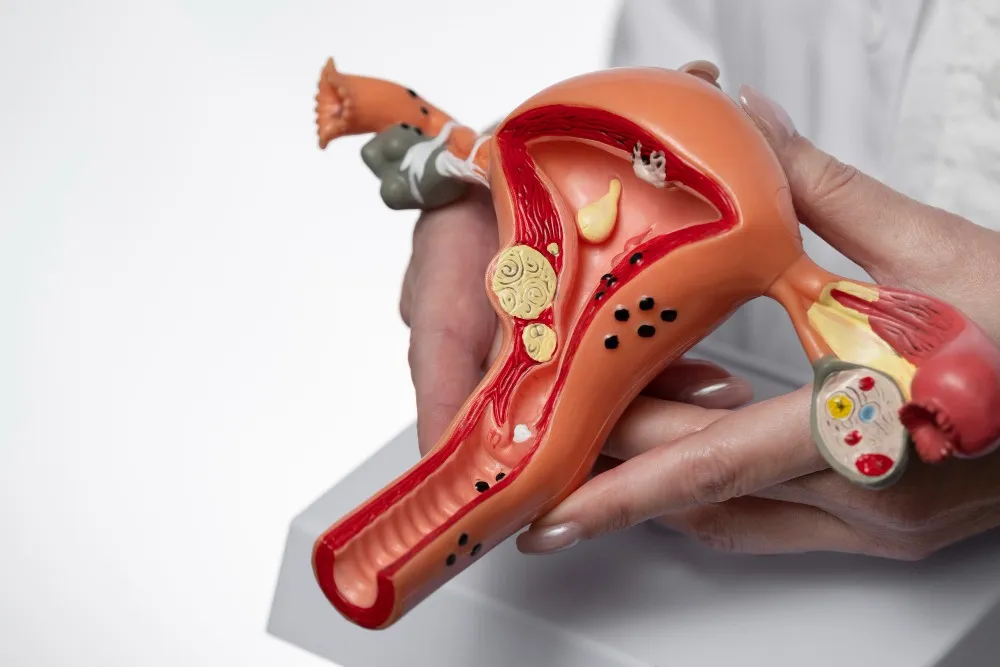What are Ovarian Cysts?
Women have two ovaries, each located on either side of the uterus. These ovaries release eggs during the monthly menstrual cycle. Ovarian cysts are small, fluid-filled sacs that develop within the ovaries. While most ovarian cysts are harmless and typically resolve on their own, some can cause serious issues, especially if they rupture.
Types of Ovarian Cysts
The most common type of cyst is Functional cysts. There are two types.
- Functional Cysts: These are the most common type and are usually harmless. They include:
- Follicular cysts: Formed when the follicle doesn’t release the egg.
- Corpus luteum cysts: Develop when the follicle sac doesn’t dissolve after releasing the egg.
- Pathological Cysts: These can be benign or malignant and include:
- Dermoid cysts: Contain tissues like hair, skin, or teeth.
- Endometriomas: Caused by endometriosis, where uterine lining cells grow outside the uterus.
- Cystadenomas: Develop from ovarian tissue and can be filled with mucus or fluid.
Symptoms of Ovarian cysts
Many ovarian cysts are asymptomatic. When symptoms occur, they may include:
- Pelvic pain
- Bloating
- Painful intercourse
- Irregular menstrual cycles
- Frequent urination
Severe symptoms like sharp pelvic pain, fever, or dizziness require immediate medical attention, as they might indicate a ruptured cyst or ovarian torsion.
Treatment for Cysts
In some cases, Birth control pills will be given to stop ovulation and prevent more cysts from developing. If there are chances for the cysts to be cancerous they need to be surgically removed. There are two types:
Laparoscopy – This is a keyhole surgery where a small cut is made in the tummy, the laparoscope is inserted through a small cut in the tummy via which the cyst is removed.
Laparotomy – If the cyst is large they may have to make a large incision to remove the cyst after which a biopsy will be taken of the cyst. If so, they may suggest performing surgery for the removal of ovaries and uterus(hysterectomy).
Prevention
There is no method to prevent cysts but regular scans can help identify it at an early stage. Keep track of your monthly cycles and consult with a gynecologist in Indore doctor in case of any irregularities it.
If you’re dealing with ovarian cysts, seeking a specialist is crucial. Look for a gynecologist in Indore with extensive experience in managing PCOS, ideally someone who can provide a holistic treatment plan including lifestyle modifications, medication, and support for related conditions like insulin resistance. Patient reviews and recommendations are valuable resources when selecting the best doctor for ovarian cysts in Indore
